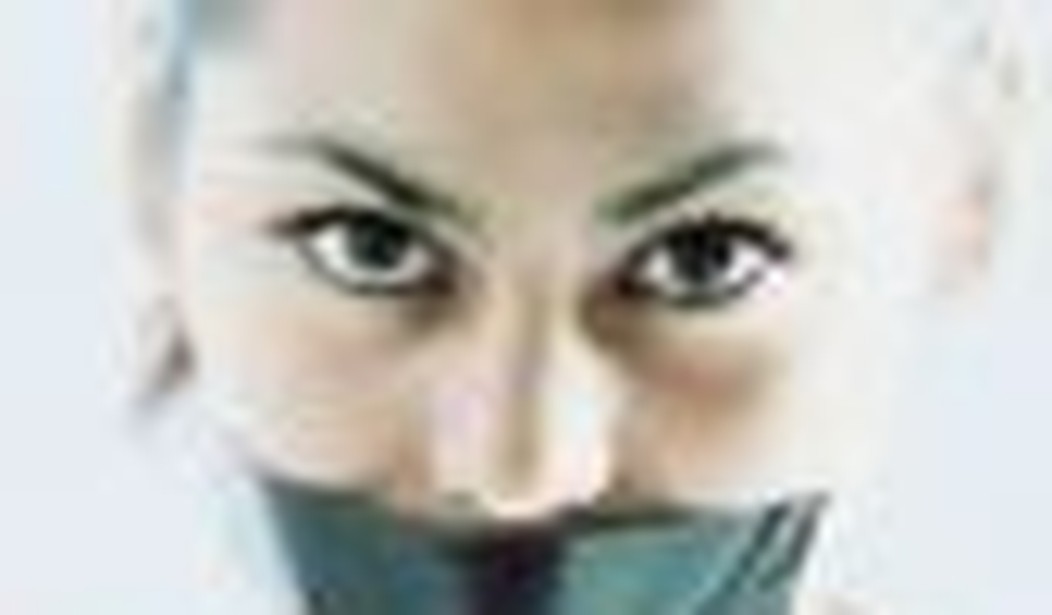According to Syrian revolutionary thinker Said Hawwa in his influential book Min Ajl Khutwa (English: For the Sake of a Step), jihad may come in three flavors: by heart, by word, and by hand, a tripartite distinction derived from the hadith literature. The jihad of the heart is an ambiguous formulation: it can mean self-discipline or the passion and steadfastness applied to waging war. The jihad of the hand (also known as the jihad of the sword) is the most conspicuous in virtue of its immediate destructiveness. But the jihad of the word — of indoctrination, propaganda, and institutional infiltration — is perhaps even more menacing since it operates virally, as it were, infecting the organs of the open society with a view to its gradual demise.
In trying to resolve the predicament in which we find ourselves, to protect a way of life which is under attack and which we have far too long taken for granted, we would need to arrive at a means not only of averting terrorist assaults — the jihad of the hand — but of resisting the jihad of the word. This means, among other things, countering the mispractice of “lawfare,” the deployment of frivolous and vindictive legal suits with the twofold intention of (a) blocking all criticism of Islam and (b) preventing the exposure of those who, whether explicitly or implicitly, abet the terrorists’ aims.
In an article for the American Spectator Brooke Goldstein shows how lawfare is a form of “legal jihad,” a technique for manipulating the courts to silence critics of Islam. This relies heavily on the practice of “forum shopping” or “libel tourism” whereby plaintiffs “bring actions in jurisdictions most likely to rule in their favor.” Goldstein mentions one Rabiah Ahmed, a staffer for the Council on American-Islamic Relations, who acknowledged such lawsuits as an “instrument” in CAIR’s bag of tricks.
Here in Canada, we have the travesty of our Human Rights Commissions, tribunals which can be accessed and mobilized free of charge — that is, at taxpayers’ expense — by anyone with a complaint against ostensibly libelous or hate-provoking action, speech, or script. The defendant is presumed guilty from the start and must pay his own legal costs. Originally established to protect tenants against unscrupulous landlords and prevent discrimination on the worksite, these commissions, with the complicity of politically correct bureaucrats and profiteering human rights lawyers, have now been largely monopolized by offended Muslims who are intent on suppressing criticism of their faith, preachings, or actions, in other words, on muzzling free speech. For close scrutiny, as they rightly fear, will often lead to bad press.
They rely on Section 13.1 of the Canadian Human Rights Act, which defines hate speech as “likely to expose a person or persons to hatred or contempt.” The formulation is so nebulous that it can be successfully applied against almost anything in print, which indicates that the tribunals are akin to kangaroo courts and show trials. There are always people, after all, ready to feel misprized by something they may happen to see, hear, or read. As a result, human rights are materially abrogated by Human Rights, rendered hollow by the very bodies created to uphold them. When one of the commission’s investigators, a certain Dean Steacy, was asked what value he ascribed to freedom of speech, he replied: “Freedom of speech is an American concept, so I don’t give it any value.”
We should keep in mind that these commissions are unelected tribunals with no accountability under law, are not bound by the presumption of innocence or the rules of evidence, are ready to accept unqualified witnesses for the prosecution, permit uninvolved third parties to file complaints, admit hearsay, are staffed by untrained and incompetent judges, do not require that the willful promotion of hatred be proven or that plaintiffs be present, are consistently unfavorable to the objections of the defense, accept anonymous posts on YouTube as evidence, and, in sum, do not operate under the normal procedures of the criminal justice system.
But although these tribunals are not real courts, they wield real power: the right to impose fines, to prohibit the defendant from speaking out, to demand formal apologies, and to prescribe jail sentences if these conditions are violated. The Human Rights Commission is essentially a contemporary revival of the notorious Camera Stellata, or Star Chamber, which sat at Westminster until 1641, enacting its arbitrary rulings on politically motivated charges.
We need not go back to 1641 for paradigms. The Star Chamber has become a modern phenomenon. There is, for example, an uncanny and troubling resemblance between our HRC procedures and the implementation of the Pakistani blasphemy laws, introduced in the 1980s by the dictator General Zia-ul-Haq and enshrined in Section 295-C of the Pakistan legal code, which dispenses with valid evidence, accepts unfounded allegations brought by one individual against another, requires no proof of intent, and does not adequately define “blasphemy.”
In one particular case, reported by Benedict Rogers of the Terrorism Awareness Project, the impressive length of the accuser’s beard was sufficient to persuade the judge of the man’s moral rectitude and the truth of his accusation. The judicial practice of our commissions is, at bottom, no less risible.
The latest CHRC sally into the theater of the absurd is its prosecution of a former member of Parliament, Jim Pankiw, who was harshly critical of the high First Nations crime rate in his home province of Saskatchewan. One of the commission’s sock puppets, Derek A. Smith, an assistant professor at Carleton University in Ottawa, found that the color of ink used in the MP’s correspondence indicated discrimination and latent racism. Pankiw has now learned to his cost that black and red ink on white paper constitutes a mockery of aboriginal iconography and is tantamount to a cultural offense. “One could hardly claim,” Smith charged, “that the symbolism in this pamphlet is not inflammatory.” Monty Python could scarcely do better. That particular parrot is surely dead.
Thankfully, several high-profile cases were recently aborted. The imam who lodged a complaint with the Alberta Human Rights Commission against the editor of the Western Standard, Ezra Levant, for republishing the Danish cartoons, thought better of it and withdrew his claim, though not until Levant, harassed for almost three years, was $100,000 out of pocket. The Muslim-instigated case against political writer Mark Steyn and Maclean’s current affairs magazine, which ran an excerpt from Steyn’s brilliant America Alone, was dismissed by the Ontario Human Rights Commission, after much adverse publicity, on the flimsy pretext that it lacked jurisdiction over printed material (which did not prevent it from issuing a statement that it “strongly condemns the Islamophobic [sic] portrayal of Muslims”).
Further details regarding these ludicrous proceedings, which I have only sketched out here, can be gleaned from Levant’s new book Shakedown: How Our Government Is Undermining Democracy in the Name of Human Rights. More recently, the Manitoba Human Rights Commission, which spent five years investigating a hate speech complaint against B’nai Brith Canada, prompted by an anonymous and absent tipster and based on the secret report of an equally anonymous “expert,” eventually concluded there was “no reasonable basis in the evidence” for the case. In this way, our so-called Human Rights Commissions cut their losses in order to live and persecute another day.
Clearly, considerable and entirely unnecessary damage is done by so skewed a parallel legal system, essentially a form of secular Sharia. These tribunals continue to stress that group rights retain precedence over other human rights and do not recognize that freedom of expression is a Charter value. Nothing daunts a Human Rights Commission. Its latest bit of mischief is the attempt to influence the courts to accept a Muslim woman’s right to be veiled during a judicial proceeding. It has no compunction allowing a masked plaintiff or witness to trump the Charter right to a fair and open trial.
We are truly in danger of losing many of our cherished rights and freedoms in this country. A working group of American university and college professors, members of the American Political Science Association, think so too. They have objected to Toronto as the site for the Association’s 2009 conference, having come to believe, in the words of spokesman Bradley Watson, “Canada to be a problematic destination.” Cognizant of the “Canadian attacks on freedom of speech,” he feels it is “unacceptable … to risk exposing [our] members to them.”
“In the hands of barbarians,” writes Andrew C. McCarthy in Willful Blindness, the law “is an offensive weapon.” As brandished by “our swelling nomiocracy,” it has become a dangerous liability. “In the war against radical Islam,” he warns, if we fail to understand how the law can be manipulated to our disadvantage, “we are shrinking from our highest duty: to protect lives.” And, as it should go without saying, to defend “the core aspects of Western liberalism: self-determination, freedom of choice, freedom of conscience, equality under the law.”
Similarly, when asked in an interview what radical Islam portends for America, Joseph Hakim, vice president of the International Christian Union, replied: “Radical Islamists will never be integrated into American society. They will grow like a cancer, but let us not be fooled by them. They are well educated and lavishly funded. And they know when to wear suits and pretend to conform while seeking to destroy our economy [and] to exploit our system of government.” Hakim knows whereof he speaks, having observed firsthand the systematic abuse of Christian populations in Arab lands and the various methods by which radical Muslims are able to infest the body politic. According to this authority, what is at stake is the integrity of government and the health of the economy, but these are undermined most effectively through the subversion of our judicial system.
The conclusion is self-evident. Not until our legal institutions can properly calibrate the balance between human rights and freedom of speech and thought — and in the process remember that free speech is a primary human right — will so rudderless a society as ours make any real headway against the Islamic jihad and those who would stifle our ability to think, speak, and act.
Indeed, if we do not move to annul the jihad of the word, the jihad of the hand may no longer be necessary.










Join the conversation as a VIP Member